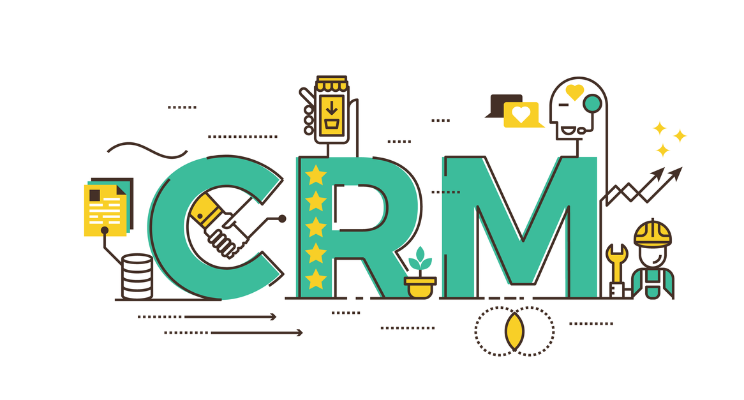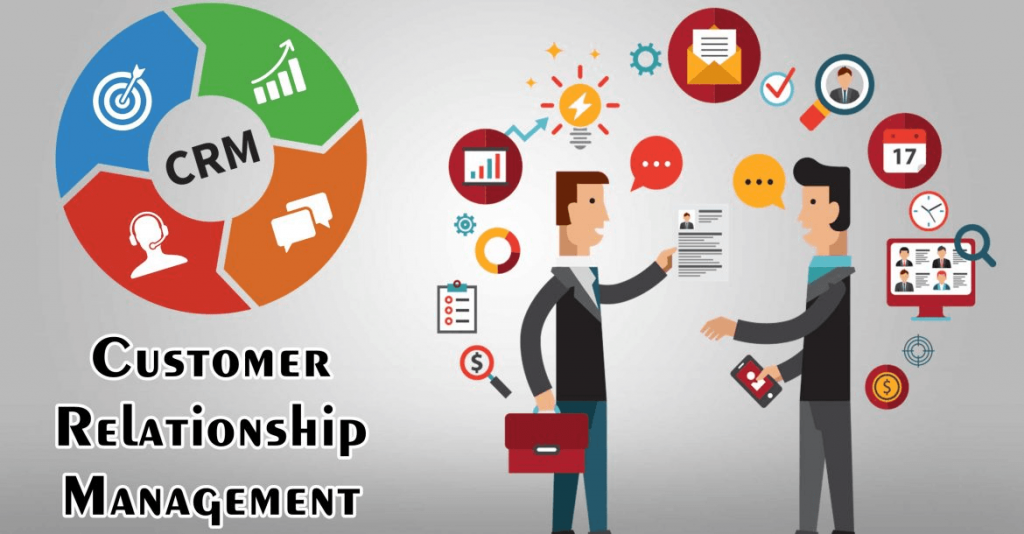CRM stands for “Customer Relationship Management”. CRM is a research strategy for customers’ behaviors and needs in order to develop stronger relationships with them. Good relationship with customers is the key to successful business. Although containing many technological elements, customer relationship management is not merely an electronic tool.
We should consider CRM as a useful strategy in understanding customer needs and how to meet those needs in order to bring higher profits for businesses. This strategy is based on a collection of pieces of information about customers and market trends that businesses have, so you can sell and market your products / services more effectively.
What is the goal of CRM?
The goal of CRM is to help businesses have a thorough view of customer behavior and values through technology tools and human resources. With an effective CRM strategy, a business can increase sales by:
- Provide exactly the services / products customers want.
- Provide better customer service.
- The attached products are more effective.
- Help sales staff sell products faster.
- Retain existing customers and find new ones.
The above ideas are very interesting to hear. But what exactly do you have to do?
You will not be able to achieve these great effects simply by purchasing and installing CRM software. To manage customer relationship really works, businesses first need to understand who their customers are and how valuable they are in the customer life cycle. After that, the company must determine customer needs and how to best meet those needs. For example, many financial institutions follow the phases of their customers’ lives to market banking services (mortgages, personal retirement funds, etc.) at the right time and in accordance with their needs.
What is the definition of Customer Relationship Management?
Next, businesses must consider customer information from different perspectives: how they come to the business, where are these customer data stored and are currently being used effectively. … For example, a company can interact with customers in many ways, including emailing campaigns, websites, physical stores, interacting via telephone exchange, through salespeople. and advertising programs.
CRM systems link the above methods together and form a continuous flow of data. The collected data circulates between active systems (such as sales and inventory systems), after which the analytical system can help organize this information. Finally, the company’s analysts will have enough data to see an overview of each customer and service area that needs to be improved. For example, if someone is mortgaging, borrowing a business loan, setting up a personal retirement fund or depositing a large amount of money in a bank, the bank should pay close attention to serving this person well whenever both parties are involved.
What signs indicate the need to implement a CRM project?
When you are unable to accurately identify your customers and the needs / wants of their lives, this is a clear sign that you need to implement a CRM system. Similarly, if your customers are coming to your competitors, it is also a clear warning that you should improve your customers’ understanding. And CRM – Customer management software is the solution for you.
How long does it take for a CRM project to be operational?
The answer depends on your decision. If you decide to use a hosted CRM solution (Host CRM) from an application service provider and you plan to apply it to a specific department such as a sales department, the management management deployment Customer information will take place relatively quickly – only about 30-90 days. However, if you decide to implement both a hosted CRM solution and a downloadable version (CRM on premise – a version that involves the purchase of a prepaid software license) on an enterprise-wide basis, declaration and training can take several months, sometimes a whole year. The time it takes to deploy a CRM depends on the complexity of the project, the CRM components you decide to install, and the manager’s project management capabilities.
How much does CRM cost?
Again the answer depends on your decision. A CRM solution package that stores vending data can cost anywhere from $ 198 to $ 384 a month. If you want more complex functions and greater support, the more money you need to spend. A CRM On-Premise package can cost from a few thousand to a few million dollars, up and down in the number of functions you buy and how many computers have access to that software. For example, a small company might buy an email marketing management application or a salesforce automation application, while a larger company might want to buy an integrated software package that includes Application for Marketing, Sales, Customer Service and Support (via call center and online Internet). Naturally the integrated software package is a lot more expensive.
What are the advantages of hosted CRM (Hosted CRM or On-demand CRM) over downloaded CRM versions (On-premise CRM) and vice versa?
Over the past few years, the rate of use of hosted CRM has increased dramatically among small and medium-sized companies, the main reason being that they are concerned about the cost and the complexity of deploying large-scale downloadable CRM versions. . And indeed, hosted CRM is a good choice for companies that want to implement a standard CRM process because the system uses different data structures, often with little or no IT support. internal, and does not require real-time coordination with overly complex office systems. However, hosted CRM software is not as simple as people think. Custom CRM hosting may be problematic and vendor’s API (application programming interface) may not be able to integrate with the application on the website.
Deploying a hosted CRM system is not as time-consuming as the downloaded CRM software packages, but large and complex transitions can take a year or longer. And while hosted CRM options rarely require technical support from an internal system, the upgrade is sometimes complicated because of the technical implications. In addition, some companies with particularly sensitive customer data, such as those working in financial services and healthcare, may not want third parties to participate in the auditing process. Data control for security reasons. As a result, AMR Research predicts that hosted CRM will account for only 12% of the US CRM market.
What is the key to successful CRM project implementation?
- Develop a customer-centric strategy before considering the need to use this type of technology.
- Divide the CRM project into smaller sections for management by setting up pilot programs and milestones in the short term. Start with implementing a pilot project that incorporates all the necessary departments but is small enough and flexible enough to be revised during operation.
- Make sure your CRM plan is considered to expand your CRM project. Think carefully about the best solution for your business: a solution that combines the best software from multiple vendors through a Web service or an integrated software package from a solution provider customer relationship management.
- Don’t underestimate the amount of data you can collect and make sure that if you need to expand the system, you can.
- Think carefully when deciding what data should be collected and stored. Transient emotions will cause you to store all the data you can save without a good reason. Storing useless data wastes you both time and money.
Which department should implement a CRM project?
The biggest profit comes from adjusting the business and assigning the work. CRM and IT strategies run in all departments, not just in one department. In fact, the best part to be responsible for a CRM project is the one that uses this software the most, and it should also be the one that uses the most information technology and gets advice from the CEO.
What factors cause a CRM project failure?
Lots of factors. From the outset, the lack of communication between people in the customer relationship chain can cause businesses to “lose points” in the eyes of customers. Ineffective communication causes the technology to be implemented without proper support or rejected by the buyer. For example, if the sales team is not aware of the benefits of the system, they may not enter detailed customer data – essential for the success of the program. Only a quarter of Fortune 500 companies are trying to implement CRM, because the previous project was not effective in getting the sales team to use and they did not train sales staff when the software was ready. to use.
Which industry is easy to implement CRM project?
As usual, financial services and the telecommunications industry are leading the way in deploying high-tech software, including CRM software. Other industries are also starting to consider, including consumer goods manufacturers, retailers and high-tech companies.
Which industry is difficult to implement CRM?
Heavy industry. As a rule, the further away the industry is from the customer on the manufacturing process, the less important the CRM solution is.








